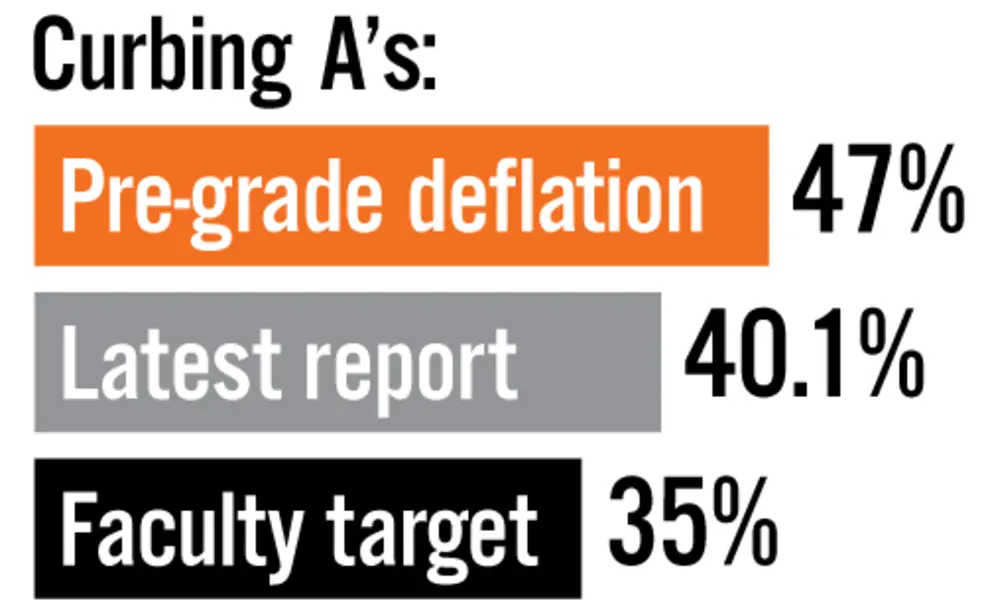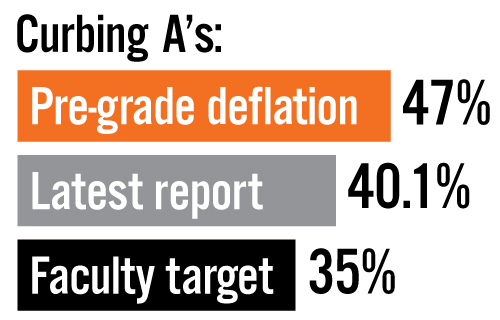A pause in progress toward meeting grade-deflation goal
Though the University had hoped to limit A’s to 35 percent of all undergraduate course grades as part of its grade-deflation policy, faculty members have found the target to be elusive.
The Faculty Committee on Grading reported Sept. 19 that 40.1 percent of grades for all courses in 2008–11 were A’s, the same percentage that the committee reported a year earlier for the 2007–10 period.
As in past years, departments in the natural sciences and social sciences continued to be the toughest graders, awarding A’s to 36.7 percent and 37.8 percent of students, respectively, in the last three years. In engineering courses, A grades accounted for 40.0 percent of all grades, while in the humanities, 43.2 percent of grades were A’s. For academic programs, 43.4 percent of all grades were A’s.
“The recent statistics indicate that the percentage of A grades has settled into the 40 percent range,” said Valerie Smith, who as the new dean of the college is the chairwoman of the Committee on Grading. The faculty voted in 2004 to set targets that would limit A’s to 35 percent of grades within each department and 55 percent of junior papers and senior theses. For 2001–04, 47 percent of all course grades were A’s. Since then the average GPA has declined by less than 0.1 point, the grading committee said.
The Daily Princetonian called for changes to reflect the fact that “Princeton grades simply do not mean the same thing that grades from other schools do.” One suggestion would use a different scale for reporting GPAs than the 4.0 commonly used; another would add statistics on the grading in individual classes to a student’s transcript.
The Prince also said more data are needed on how the policy affects students’ options after graduation, though the faculty committee said that students “continue to do extremely well” in competing for jobs and admission to graduate and professional schools.
Smith said that during the year, the work of the Committee on Grading will be expanded to look at “questions of grading and evaluating student work in a broader context,” but declined to give details.













No responses yet